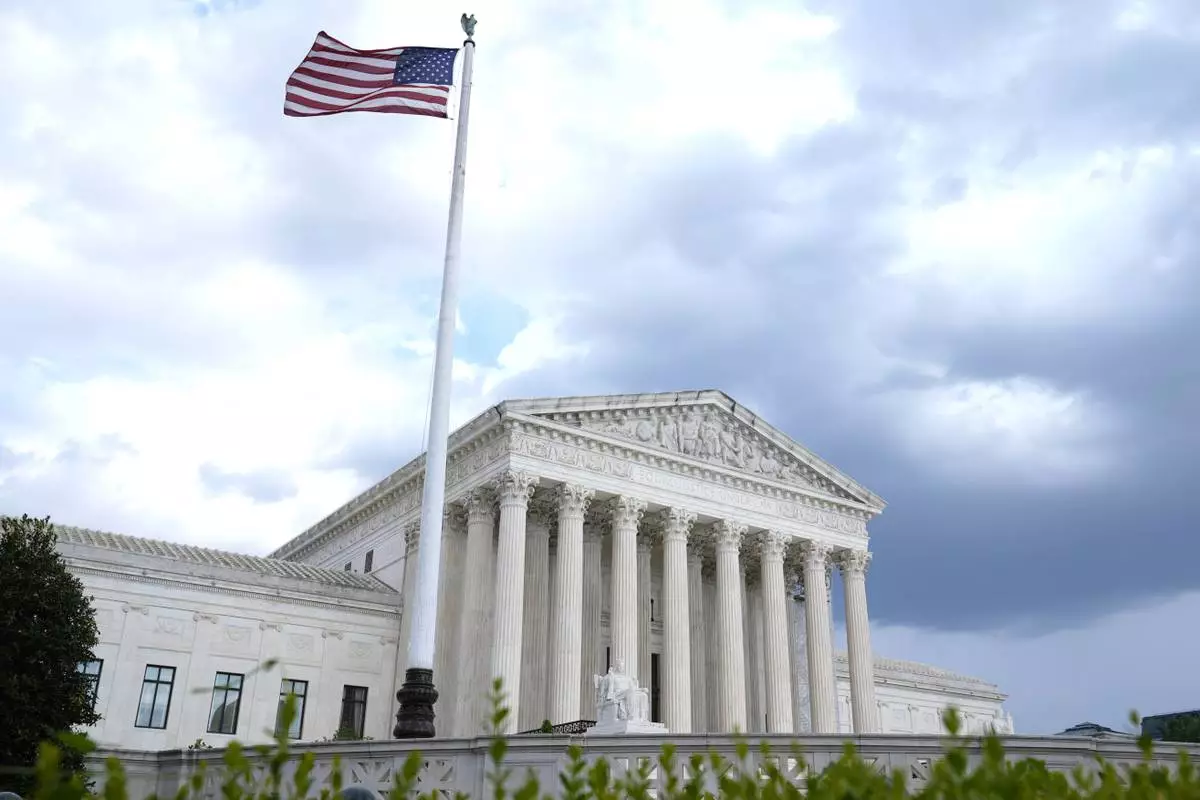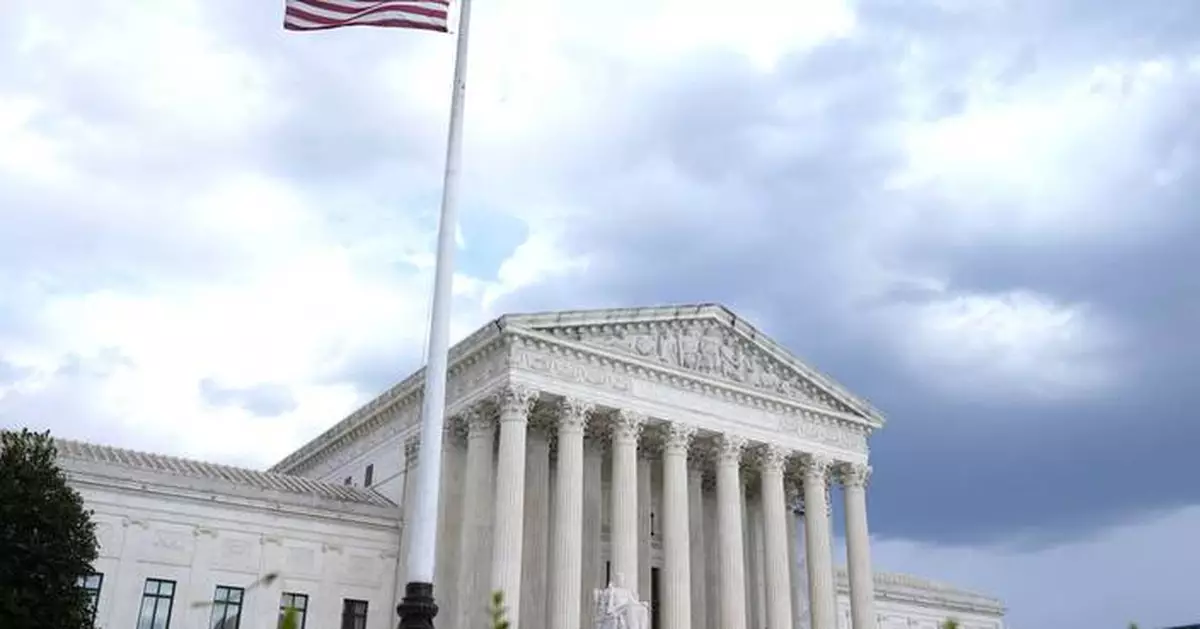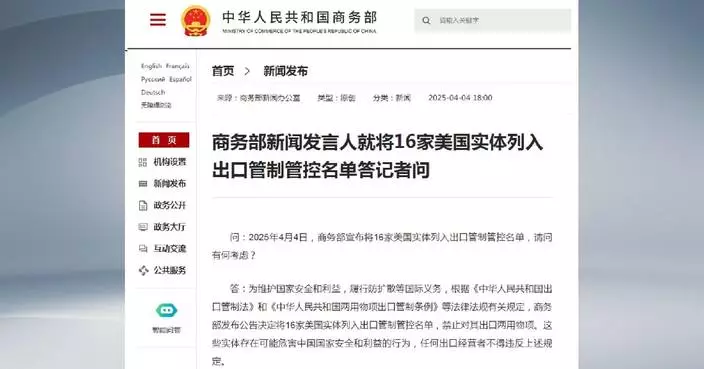WASHINGTON (AP) — Senate Majority Leader Chuck Schumer will introduce legislation Thursday reaffirming that presidents do not have immunity for criminal actions, an attempt to reverse the Supreme Court’s landmark decision last month.
Schumer’s No Kings Act would attempt to invalidate the decision by declaring that presidents are not immune from criminal law and clarifying that Congress, not the Supreme Court, determines to whom federal criminal law is applied.
The court’s conservative majority decided July 1 that presidents have broad immunity from criminal prosecution for actions taken within their official duties — a decision that threw into doubt the Justice Department’s case against Republican former President Donald Trump for his efforts to overturn his 2020 election loss.
Schumer, of New York, said that Congress has an obligation and the constitutional authority to check the Supreme Court on its decision.
”Given the dangerous and consequential implications of the court’s ruling, legislation would be the fastest and most efficient method to correcting the grave precedent the Trump ruling presented,” he said.
The Senate bill, which has more than two dozen Democratic cosponsors, comes after Democratic President Joe Biden called on lawmakers earlier this week to ratify a constitutional amendment limiting presidential immunity, along with establishing term limits and an enforceable ethics code for the court’s nine justices. Rep. Joseph Morelle, D-N.Y., recently proposed a constitutional amendment in the House.
The Supreme Court’s immunity decision stunned Washington and drew a sharp dissent from the court’s liberal justices warning of the perils to democracy, particularly as Trump seeks a return to the White House.
Trump celebrated the decision as a “BIG WIN” on his social media platform, and Republicans in Congress rallied around him. Without GOP support, Schumer’s bill has little chance of passing in the narrowly divided chamber.
Speaking about Biden's proposal, Senate Republican Leader Mitch McConnell said that Biden’s proposal would “shred the Constitution.”
A constitutional amendment would be even more difficult to pass. Such a resolution takes a two-thirds vote in both the House and the Senate, which is highly unlikely at this time of divided government, and ratification by three-fourths of the states. That process could take several years.
Still, Democrats see the proposals as a warning to the court and an effort that will rally their voting base ahead of the presidential election.
Vice President Kamala Harris, who is running against Trump in the November election, said earlier this week the reforms are needed because “there is a clear crisis of confidence facing the Supreme Court.”
The title of Schumer’s bill harkens back to Justice Sonia Sotomayor's dissent in the case, in which she said that “in every use of official power, the President is now a king above the law.”
The decision “makes a mockery of the principle, foundational to our Constitution and system of government, that no man is above the law,” Sotomayor said.
In the ruling, Chief Justice John Roberts wrote for the majority that “our constitutional structure of separated powers, the nature of presidential power entitles a former president to absolute immunity from criminal prosecution for actions within his conclusive and preclusive constitutional authority.”
But Roberts insisted that the president “is not above the law.”
Associated Press writer Lisa Mascaro contributed to this report.

FILE - The Supreme Court is pictured, June 30, 2024, in Washington. President Joe Biden went public Monday, July 29, with major changes he's proposing for the Supreme Court: an enforceable code of ethics, term limits for justices and a constitutional amendment that would limit the justices' recent decision on presidential immunity. There's almost no chance of the proposal passing a closely divided Congress, but the ideas could still spark conversation with public confidence in the court hitting an all-time low in recent years amid ethical revelations about some justices. (AP Photo/Susan Walsh, File)
ANAHEIM, Calif. (AP) — José Ramírez blasted three homers and carried the Guardians to a victory Friday night. The veteran slugger claimed another place in Cleveland baseball history in the process.
Ramírez hit a solo homer in the first, a tying two-run shot in the fifth and another solo shot in the ninth inning of the Guardians' 8-6 victory over the Los Angeles Angels, ending Cleveland's three-game skid.
Ramírez's 26th career multi-homer game moved him even with Albert Belle and Jim Thome for the most multi-homer performances in the history of a franchise that began play in 1901. It was also the second three-homer game of Ramírez’s career, which has been spent entirely with Cleveland.
“I appreciate these types of days,” Ramírez said through an interpreter. “Sometimes it’s hard to hit one, and then when you hit three, you just thank God for these type of games, and most importantly because we won.”
Ramírez connected twice off Angels starter José Soriano, homering on two low breaking balls that looked quite similar — both on the way in to the plate and on the way out of right field.
He got his third off a high fastball from rookie Caden Dana, adding an insurance run that helped the Guardians to survive the Angels' two-run rally later in the ninth.
Ramírez also hit three homers on June 8, 2023, at home against Boston. His 259 homers are the second-most in Cleveland history, trailing only Thome's 337.
Ramírez's coaches and teammates could only marvel at another signature night from a superstar who doesn't always get his due.
“Best player in the world,” Cleveland manager Stephen Vogt said with a grin. “Man, he’s some kind of impressive. What a great night. Really picked us up on a night where we needed a lot of offense, and our best player came through the way those guys do. They step up. They know when we need that. They just have a knack for finding ways to do that. A three-homer game, those are so rare in itself, but to be able to witness it and to have him do it the way he did was really impressive.”
Ramírez did it six days after spraining his right wrist while sliding in Kansas City, a mishap that forced him to miss one game and has left him still missing a large chunk of skin on his hand.
The Guardians expect such feats from Ramírez, the six-time All-Star who made the All-MLB first team last season while leading Cleveland to 92 victories, the AL Central crown and the AL Championship Series. He led the Guardians in homers (39), RBIs (118) and stolen bases (41), barely missing the 40-40 club.
He hasn't stolen a base yet in 2025, but he's off to a strong start in the quest for his first 40-homer season.
“You always want good outcomes every time you hit,” Ramírez said. “Sometimes you hit the first homer, and then you don’t hit anything after that. We got good results.”
Ramírez's evening wasn't all good: He botched Luis Rengifo's two-out grounder to third in the third inning for his third error in three games. Jo Adell followed with a two-run single that put the Angels up 4-2.
Vogt said he isn't worried about Ramírez’s rough defensive stretch, calling it “a blip” for the third baseman who finished second in Gold Glove voting last year. The manager also knew Ramírez’s next at-bats would be important to him after an error.
“You always find with the top players in the league, when they happen to make a mistake like that, they seem to make up for it right away,” Vogt said. “It happens all the time. But we’re going to continue working on defense.”
AP MLB: https://apnews.com/MLB

Cleveland Guardians Jose Ramirez, center, celebrates with teammates after a baseball game against the Los Angeles Angels in Anaheim, Calif., Friday, April 4, 2025. (AP Photo/Eric Thayer)

Cleveland Guardians' Jose Ramirez celebrates with teammates in the dugout after hitting a home run during the fifth inning of a baseball game against the Los Angeles Angels in Anaheim, Calif., Friday, April 4, 2025. (AP Photo/Eric Thayer)

Cleveland Guardians Jose Ramirez, center, celebrates with teammates in the dugout after hitting a home run during the ninth inning of a baseball game against the Los Angeles Angels in Anaheim, Calif., Friday, April 4, 2025. (AP Photo/Eric Thayer)

Cleveland Guardians Jose Ramirez, left, celebrates with teammates in the dugout after hitting a home run during the ninth inning of a baseball game against the Los Angeles Angels in Anaheim, Calif., Friday, April 4, 2025. (AP Photo/Eric Thayer)

Cleveland Guardians third baseman Jose Ramirez runs the bases after hitting a home run during the first inning of a baseball game against the Los Angeles Angels in Anaheim, Calif., Friday, April 4, 2025. (AP Photo/Eric Thayer)






















































